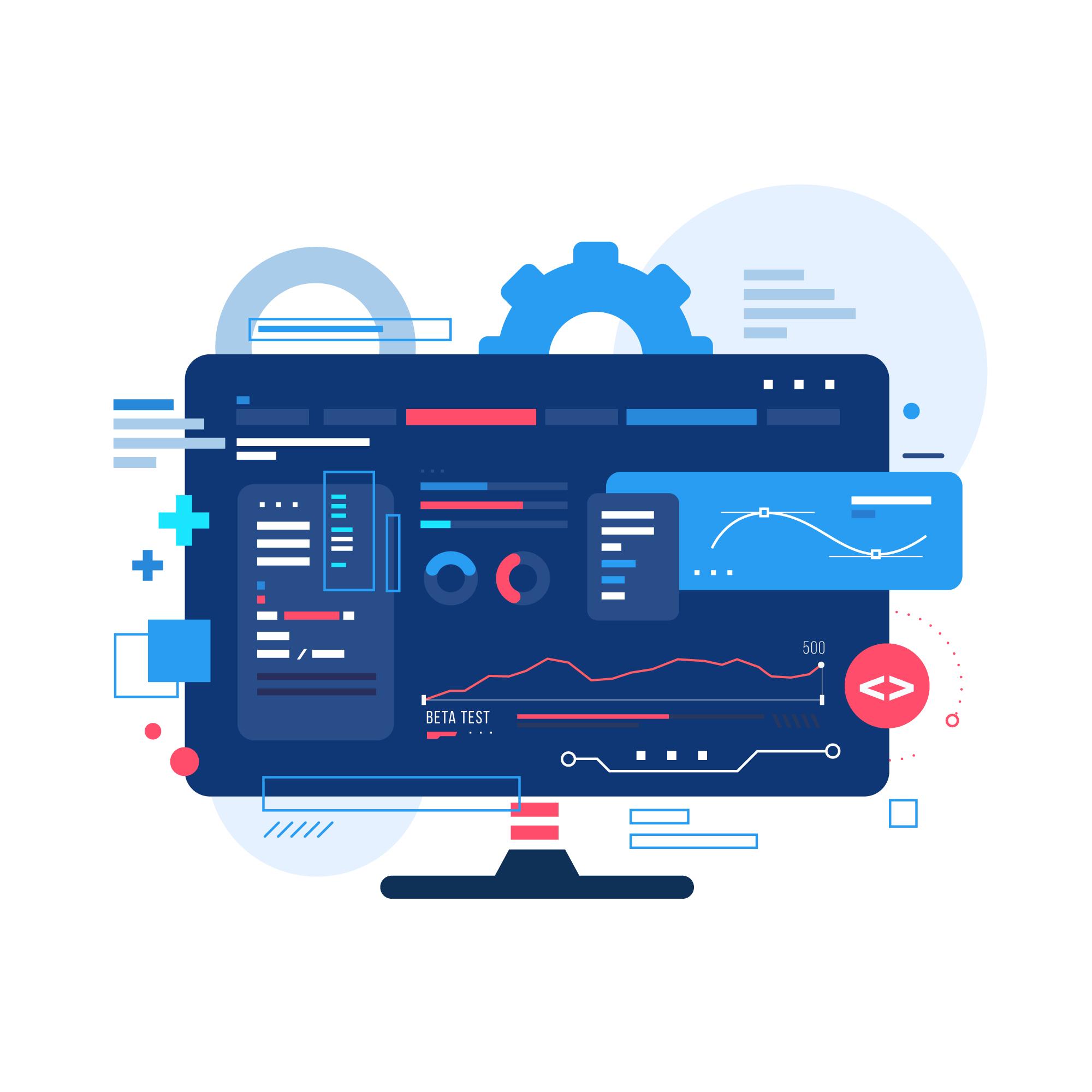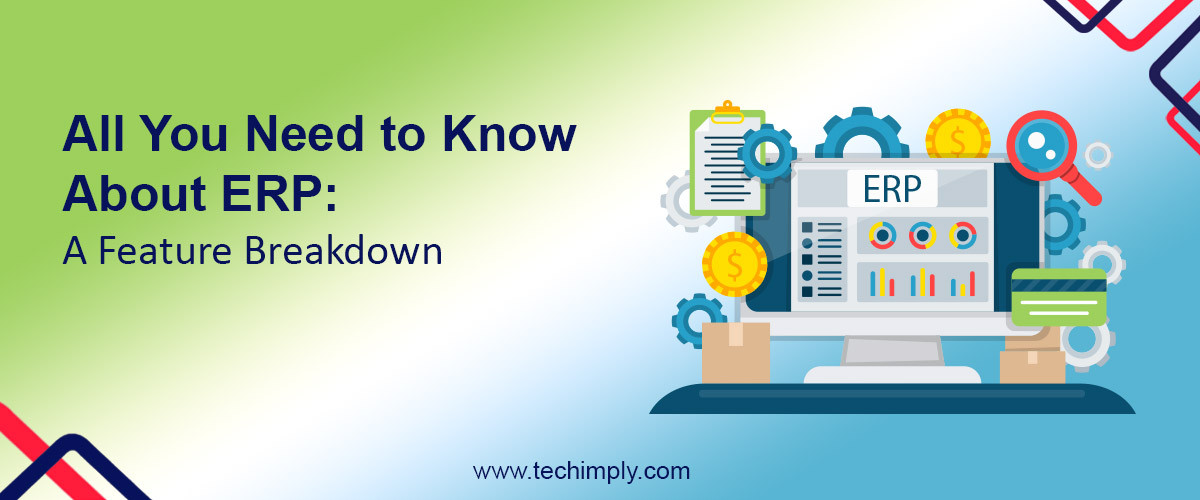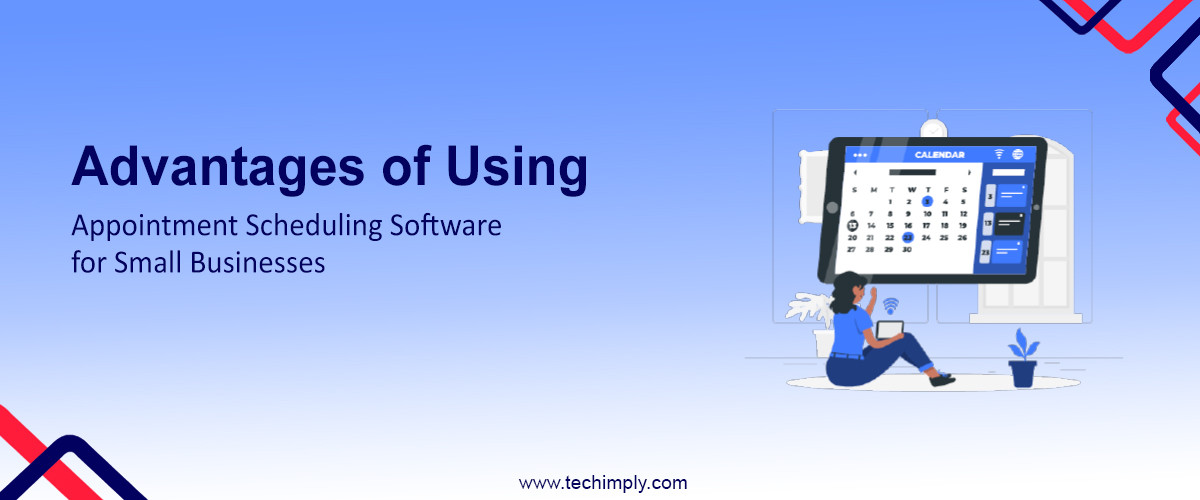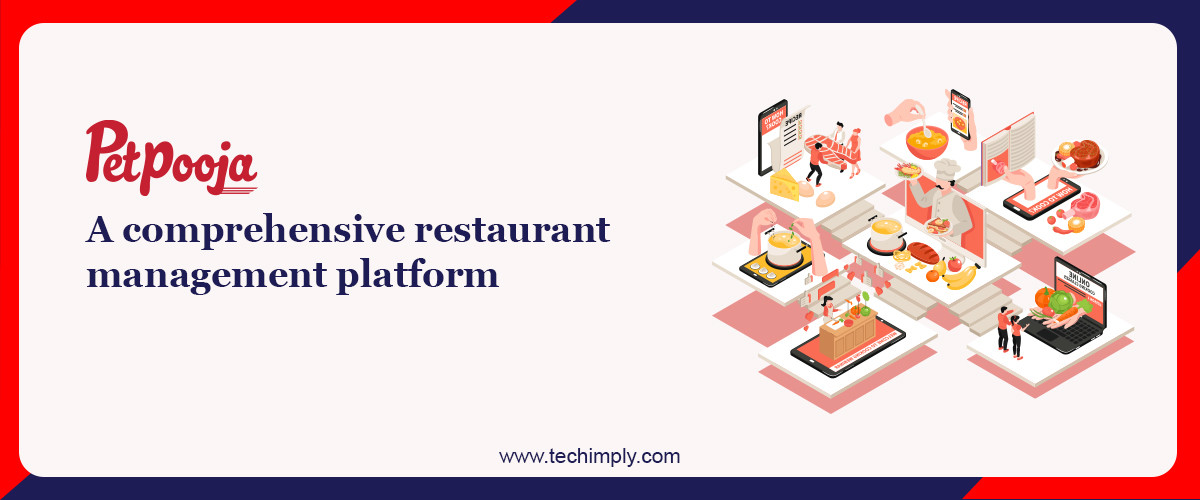The survival of a business hinges on having a competitive edge which is a must for every firm. Whether it’s Apple or Amazon or a Supermarket, they need to stay ahead of the competition. And, ERP gives that competitive edge to your business. Due to which the adoption rate of ERP in the market has gradually increased and continues its trajectory upwards.
But, what is ERP?
Enterprise Resource Planning (ERP)
According to the definition by CIO, “Enterprise resource planning (ERP) is a system of integrated software applications that standardizes, streamlines and integrates business processes across finance, human resources, procurement, distribution, and other departments.”
The term “ERP'' is a category in business software. However, Enterprise resource planning Software is a comprised system of many modules (each with its precise business necessities) that automates the business processes, offers insights and internal directions based on a central database that receives inputs from different departments like manufacturing, accounting, sales, marketing, supply chain, and human resources.
After compilation of information in the central database, ledgers achieve visibility across departments that help them to analyze multiple scenarios, identify the way to improve processes and gain more efficiency.
Why ERP Systems are Important for Business?
ERP systems have become increasingly important for organizations that want to use their resources wisely. ERP not only helps businesses to reallocate human and financial capital but also helps to build efficient processes with better performance and cost-saving.
Today’s ERP systems hold rich feature sets that deliver unlimited benefits to businesses. A few advantages that implementing ERP systems in business brings are:
-
Enhance Workflow Visibility
With ERP, all the information and workflow is stored and analyzed in one place. Having access to the system, employees can see the performance and project status of the operations related to their jobs. The enhanced visibility of the workflow can be highly valuable for managers because it becomes easier for them to search for the right information instead of constantly asking for updates from other colleagues.
-
Business Intelligence
Using ERP across the business can help in discovering trends that are impactful and provide vast insights for better decision making by the leaders of the organization.
-
Analytics
Data is only useful if companies can understand it. ERP systems help with that. It provides detailed reporting and analytical tools to allow users in tracking KPIs and display the metrics and comparison.
-
Risk Management
Micro access control and defined workflows boost financial controls and help in reducing the fraud rate. Apart from that, ERP systems offer accurate data diverted mistakes that could lead to fines or losses in sales.
-
Cost Saving
One of the biggest flexes of ERP systems is that they can save a lot of money for your organization. It simply does so by automating repetitive tasks and cross-company visibility helps to spot https://www.investopedia.com/terms/i/inefficientmarket.asp to an increase in costs. ERP enables employees to better deploy the resources they need.
-
Data Security
ERP solutions have restriction controls and firewalls that help to prevent data breaches. Only the admins responsible for managing company data can provide limited access to the employees and can easily deactivate access of ex-employees while giving access to the new ones.

Key Features of ERP
By now we know that ERP systems are ideal for analyzing and optimizing business processes. But what makes it so important is its features. So let’s understand the rich feature set of ERP Systems.
-
Integration
Integration is one of the essential features of ERP systems. Although much standalone software boasts their integration ability with other systems, they are no match to the suite of applications built to work together. ERP integration ensures that the various capabilities provided by ERP systems work harmoniously.
MRP software comes with an intuitive platform that is fully integrated. It allows you to analyze, monitor and perform data-driven processes. Integration also enables you to work with various components simultaneously.
-
Automation
Whenever ERP software is involved, the prime functionality that comes to our mind will always be automation. This feature of ERP software helps to automate tedious tasks like accounting, invoicing, payroll, order entry, and more. It assists to cut down several hours spent by your employees on these processes while allowing them to centre on other important tasks.
-
Reporting
Accurate reporting is one of the major tasks in an organization. Using ERP reporting modules, you can get compiled information on business processes into reports that help stakeholders to make informed decisions for enhancing operations and identifying problem areas before it affects the business.
-
Data Analysis
ERP systems allow businesses to collect a vast range of information and gain actionable insights to reduce costs, detect areas of fraud, optimize existing processes and provide better services.
-
Accounting
The accounting feature of ERP systems allows businesses to track, gather and analyze financial data such as accounts receivable, accounts payable, budgets, forecasting and general ledger. ERP systems also perform advanced tasks like fixed assets management, multi-currency reconciliation, tax management and revenue recognition.
-
Tracking and Visibility
Another beneficial feature of ERP systems is tracking and visibility. With tracking and visibility, companies can track, surface and understand different metrics of the business. It is done by facilitating organizational-wide access to almost real-time data, breaking down data silos and providing reporting and analysis for each business process.
-
Customer Relationship Management (CRM)
Integrated with features of CRMs, ERP systems bring customer relationship data into the blend and enlarge the business view. All the information regarding customers like order history, contact details, and prospect status are shared in an easily accessible database. It also automates operations such as creating accounts receivable reminders, purchase order filing, and sending notifications to an account executive for follow-ups.
-
Human Resource (HR)
The HR feature of an ERP system helps in employee management including hiring, handling payroll, compensation management, onboarding, and timekeeping. Other HR functions like benefits and tax deductions are automated by HR based ERP systems while reducing errors to save money and time.
-
Sales and Marketing
ERP systems integrated with CRM Software assists marketing and sales teams by making it easier to sell, upsell, forecast, generate quotes, manage commissions and track profit ratios and margins. The marketing team can also use ERP functions in conjunction with finance and operations teams to offer better customer service throughout the sales funnel.
-
Manufacturing
ERP systems make manufacturing processes more efficient by helping in sourcing raw materials, product planning, forecasting and product monitoring. Apart from that, ERP systems also assist with work order management, assembly management, distribution planning and product tracking.
-
Supply Chain Management (SCM)
ERP systems also provide insights into the Supply Chain Management of a company. It does so by tracking demands, inventory, logistics, manufacturing and distribution. An automated SCM improves processes by suggesting work orders, purchase orders, and transfer orders over different locations.
Conclusion
ERP software is a powerful tool for data management. It manages and integrates business processes using a unified system. It allows businesses to plan and manage their resources efficiently. With ERP, you can gain free information and communication flow across the organization. ERP leads to improved productivity and synergies across multiple departments of a business. If you want to develop an ERP-based web application or customized ERP solution for your business, you can hire dedicated developers who have relevant experience.






